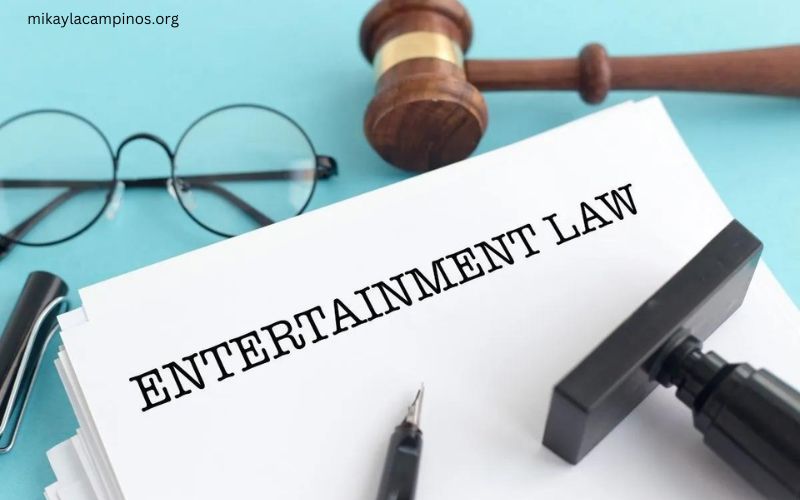In the ever-evolving and dynamic world of entertainment, navigating the intricate legal landscape is essential for artists, creators, and industry professionals alike. This is where entertainment lawyers play a pivotal role, guiding their clients through the complexities of intellectual property rights, contract negotiations, and regulatory compliance. As you delve into the realm of entertainment law, you’ll discover a fascinating and multifaceted field that shapes the industry’s operations.
What is an entertainment lawyer?
An entertainment lawyer is a legal professional who specializes in representing clients involved in various aspects of the entertainment industry. These lawyers possess a deep understanding of the unique challenges and legal nuances that arise in sectors such as music, film, television, theater, publishing, and digital media. They act as trusted advisors, advocates, and negotiators, ensuring their clients’ interests are protected and their creative endeavors are safeguarded.
Roles and responsibilities of entertainment lawyers
Entertainment lawyers wear many hats, and their roles and responsibilities are diverse and multifaceted. Here are some of the key areas in which they operate:
- Contract Negotiation and Review: Entertainment lawyers play a crucial role in negotiating and reviewing contracts for their clients. These contracts may involve talent agreements, licensing deals, distribution agreements, endorsement deals, and more. They ensure that the terms are fair, protect their clients’ rights, and align with industry standards.
- Intellectual Property Protection: Safeguarding intellectual property is a paramount concern in the entertainment industry. Entertainment lawyers assist clients in securing copyrights, trademarks, and patents for their creative works, brands, and inventions. They also handle infringement cases and ensure their clients’ intellectual property rights are not violated.
- Talent Representation: Many entertainment lawyers represent actors, musicians, authors, and other creative professionals. They negotiate contracts, secure employment opportunities, and protect their clients’ interests throughout their careers.
- Licensing and Merchandising: Entertainment lawyers facilitate the licensing and merchandising of their clients’ intellectual property, such as characters, logos, and brands. They negotiate licensing agreements and ensure proper compensation for the use of their clients’ creations.
- Legal Compliance and Risk Management: The entertainment industry is subject to various regulations and laws. Entertainment lawyers ensure their clients comply with relevant laws, such as those related to labor practices, advertising, and content restrictions. They also help mitigate legal risks and handle any disputes or litigation that may arise.
Entertainment law specialties
Within the broader field of entertainment law, lawyers may specialize in specific areas, such as:
- Music Law: Representing musicians, record labels, and music publishers in matters related to recording contracts, royalties, and copyright issues.
- Film and Television Law: Handling legal affairs for film and television productions, including financing, distribution, and talent agreements.
- Publishing Law: Assisting authors, publishers, and literary agents with book deals, copyright protection, and licensing agreements.
- Sports and Entertainment Law: Representing athletes, teams, and sports organizations in areas such as endorsement deals, sponsorships, and player contracts.
- Digital Media Law: Addressing legal issues related to online platforms, streaming services, and emerging technologies in the entertainment industry.
Legal issues in the entertainment industry
The entertainment industry is rife with legal challenges and complexities. Some of the common legal issues that entertainment lawyers tackle include:
- Copyright Infringement: Protecting clients’ original works from unauthorized use or reproduction is a constant concern. Entertainment lawyers handle copyright infringement cases and ensure their clients’ intellectual property rights are upheld.
- Defamation and Privacy: Public figures in the entertainment industry often face defamation claims or privacy violations. Entertainment lawyers handle these sensitive cases and work to protect their clients’ reputations and privacy rights.
- Labor and Employment Disputes: The entertainment industry is known for its unique employment relationships and labor practices. Entertainment lawyers navigate these complexities, ensuring compliance with labor laws and resolving any disputes that may arise.
- Contract Breaches and Disputes: Contract disputes are common in the entertainment industry, whether related to talent agreements, distribution deals, or licensing arrangements. Entertainment lawyers represent their clients in these disputes, striving for fair resolutions.
- Regulatory Compliance: The entertainment industry is subject to various regulations, such as those related to advertising, content restrictions, and tax laws. Entertainment lawyers ensure their clients comply with these regulations to avoid legal penalties or sanctions.
Importance of entertainment lawyers for artists and creatives
For artists and creatives, having a skilled entertainment lawyer by their side is invaluable. These professionals play a crucial role in protecting their clients’ creative works, negotiating favorable deals, and ensuring their rights are safeguarded. Without proper legal representation, artists and creatives may find themselves vulnerable to exploitation, infringement, or unfair treatment.
Entertainment lawyers also provide valuable guidance and strategic advice, helping their clients navigate the complex and ever-changing landscape of the entertainment industry. They can assist in making informed decisions, maximizing opportunities, and mitigating potential legal risks.
How to become an entertainment lawyer
Becoming an entertainment lawyer requires a combination of education, training, and industry experience. Here’s a general overview of the path:
- Obtain a Bachelor’s Degree: While no specific undergraduate major is required, many aspiring entertainment lawyers pursue degrees in fields such as communications, media studies, or business, which can provide valuable background knowledge.
- Attend Law School: Earning a Juris Doctor (J.D.) degree from an accredited law school is essential. During law school, students can take courses related to entertainment law, intellectual property, and contract law to gain relevant knowledge.
- Gain Practical Experience: Many law schools offer clinics, externships, or internships in entertainment law firms or organizations. This hands-on experience is invaluable for developing practical skills and making industry connections.
- Consider Specializations or Advanced Degrees: Some lawyers may choose to pursue specialized degrees or certifications, such as a Master of Laws (LL.M.) in entertainment law or intellectual property law, to deepen their expertise.
- Build a Network: Networking is crucial in the entertainment industry. Attend industry events, join professional associations, and connect with professionals in the field to expand your network and learn about job opportunities.
- Obtain Licensure: After completing law school and passing the bar exam in the state where you plan to practice, you can officially begin your career as an entertainment lawyer.
Famous entertainment lawyers and their notable cases
The entertainment industry has seen its fair share of high-profile legal battles, and many renowned lawyers have made their mark by representing high-profile clients. Here are a few notable examples:
- Bert Fields: A legendary entertainment lawyer, Fields has represented clients such as Tom Cruise, Michael Jackson, and the Beatles. He played a pivotal role in the “Monty Python” legal battles over the rights to the iconic comedy troupe’s works.
- David Boies: Boies gained widespread recognition for representing Al Gore in the highly publicized Bush v. Gore case during the 2000 presidential election. He has also represented clients like Harvey Weinstein and Theranos founder Elizabeth Holmes.
- Marty Singer: Known as a “Hollywood lawyer to the stars,” Singer has represented clients like Charlie Sheen, John Travolta, and Bill Cosby in various legal matters, including defamation cases and contract disputes.
- Howard Weitzman: Weitzman has represented high-profile clients like O.J. Simpson, Justin Bieber, and Britney Spears in legal battles ranging from criminal cases to intellectual property disputes.
- Patty Glaser: Glaser is a renowned music lawyer who has represented artists like Lady Gaga, Mariah Carey, and Justin Timberlake. She has played a significant role in negotiating and structuring complex music deals and endorsement agreements.
Common misconceptions about entertainment lawyers
Despite their important role in the entertainment industry, entertainment lawyers often face several misconceptions and misunderstandings. Here are some common ones:
- Entertainment lawyers only represent celebrities: While many entertainment lawyers do represent high-profile celebrities, their clientele also includes aspiring artists, independent filmmakers, authors, and other creatives at various stages of their careers.
- Entertainment law is all about glamour: While the entertainment industry may seem glamorous from the outside, the legal work involved is often complex, demanding, and requires a deep understanding of various legal disciplines.
- Entertainment lawyers only handle contract negotiations: While contract negotiations are a significant part of their work, entertainment lawyers also handle a wide range of legal issues, including intellectual property protection, regulatory compliance, and dispute resolution.
- Entertainment law is a niche field: While it is a specialized area of law, entertainment law encompasses various legal disciplines, including contract law, intellectual property law, labor law, and more, making it a multifaceted and dynamic field.
- Entertainment lawyers only work in major entertainment hubs: While many entertainment lawyers are based in cities like Los Angeles, New York, and Nashville, the reach of the entertainment industry is global, and lawyers in this field can practice in various locations.
Conclusion
In the dynamic and ever-evolving entertainment industry, the role of entertainment lawyers is indispensable. These legal professionals navigate the intricate web of contracts, intellectual property rights, and regulatory complexities, ensuring that their clients’ creative endeavors are protected and their interests are safeguarded.
From negotiating favorable deals to resolving disputes and ensuring compliance, entertainment lawyers are the guardians of their clients’ artistic and commercial pursuits. As the entertainment landscape continues to evolve, their expertise and guidance will remain invaluable for artists, creators, and industry professionals alike.
If you’re an aspiring artist, creator, or industry professional looking to navigate the legal complexities of the entertainment industry, consider seeking the expertise of a skilled entertainment lawyer. At [Law Firm Name], our team of experienced entertainment attorneys is dedicated to protecting your rights, maximizing your opportunities, and guiding you through every step of your creative journey. Contact us today to schedule a consultation and take the first step toward securing your success in the entertainment world.



